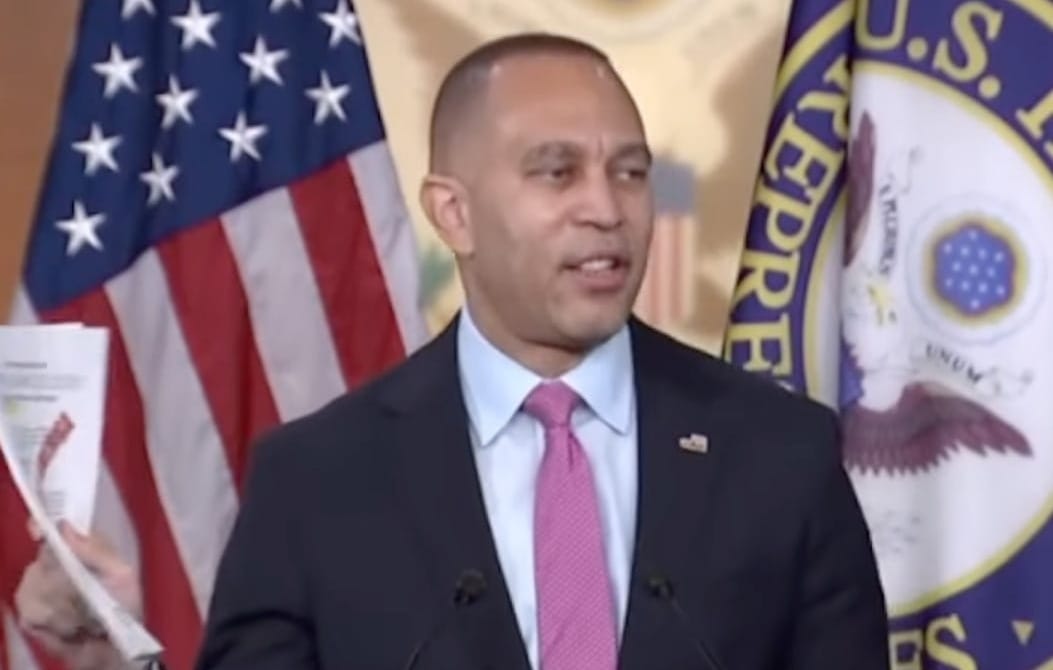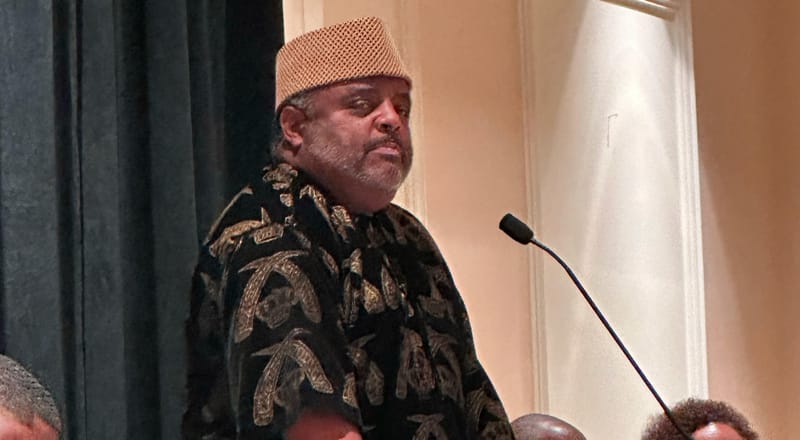House Democrats Oppose GOP's "Contract Against America"
With the expected deadline for the debt ceiling fast approaching this summer and the March 14 deadline for funding bills looming, Jeffries made it clear that Republicans would need Democratic cooperation to move forward — but only if they make significant policy concessions.
Washington — On Thursday, House Minority Leader Hakeem Jeffries (D-N.Y.) put GOP leaders on notice, signaling that Democratic votes cannot be taken for granted when it comes to crucial fiscal matters such as raising the debt ceiling and passing spending bills needed to avoid a government shutdown. With the expected deadline for the debt ceiling fast approaching this summer and the March 14 deadline for funding bills looming, Jeffries made it clear that Republicans would need Democratic cooperation to move forward — but only if they make significant policy concessions.
GOP’s Partisan Budget Process Under Fire
Jeffries used a press conference to criticize the Republican plan to utilize the budget reconciliation process, a parliamentary procedure that allows the GOP to push through spending cuts and tax policies without Democratic support. The proposal, which could involve trillions of dollars in cuts to federal programs, is seen as targeting essential services like Medicaid and the Affordable Care Act while extending tax cuts for the wealthiest Americans.
Jeffries sharply criticized this approach, claiming the GOP's budget plans could severely harm the middle class. He also emphasized the lack of communication from Republican leadership on critical fiscal matters. “The Republicans have not opened up any line of communication with us,” Jeffries stated. “They’ve had no communications with us. It’s not hard to find me. They know where I’m at. They know my number.” The stark accusation underscores the deep divide between the two parties and suggests the GOP's approach may be more unilateral than cooperative.
Rosa DeLauro and the Separate Appropriations Track
While Jeffries condemned the GOP’s use of the reconciliation process, there’s some hope for bipartisan negotiations on fiscal year 2025 spending. House Appropriations Committee Chair Rosa DeLauro (D-Conn.) has begun engaging in behind-the-scenes talks with her counterparts in both the House and Senate. DeLauro expressed optimism that if leadership from both chambers gives the appropriators the green light, a topline spending deal can be hammered out.
However, these efforts are running parallel to the GOP's attempt to push a large fiscal package through the reconciliation process, which Jeffries warned would not be passed without a political price. According to Jeffries, Democrats will fiercely oppose any GOP budget package that cuts programs like Medicaid, the Affordable Care Act, and the mortgage interest deduction — key measures that impact working- and middle-class Americans.
Leaked GOP Budget Plan: A 50-Page Document Full of Controversial Proposals
Jeffries also pointed to a leaked 50-page document compiled by the GOP Budget Committee, detailing trillions of dollars in proposed tax and spending changes. The document, which has stirred significant controversy, reveals the GOP's intentions to significantly cut social programs while extending tax cuts aimed at benefiting wealthy Americans. Jeffries did not hold back in condemning the plan, saying, “House Republicans can no longer hide their intentions from the American people... Their extreme budget plan is out. It’s a 50-page document. I have it in my hands.”
The leaked document includes proposals that Jeffries argues will “end Medicaid as we know it,” “destroy the Affordable Care Act,” and “eliminate the mortgage interest deduction,” all of which could lead to rising costs for tens of millions of working-class and middle-class Americans. “We will oppose this with every fiber in our body,” Jeffries vowed, signaling strong Democratic resistance to the GOP’s fiscal agenda.
Debt Ceiling Crisis: Will the GOP Secure Democratic Votes?
The ongoing battle over the debt ceiling is another area where Jeffries emphasized that Democrats will not be easily swayed. In December, Democrats made it clear that they would not support a two-year suspension of the debt ceiling as part of a stopgap funding bill that was put forward by then-President-elect Donald Trump. Jeffries reiterated that Democrats are not willing to provide a “blank check” for the GOP to pass tax cuts for billionaires and wealthy corporations, at the expense of cuts to crucial social programs like Medicare, Medicaid, and Social Security.
Speaker Mike Johnson (R-La.) recently proposed attaching a debt ceiling increase to a much-needed wildfire relief funding package, but Jeffries quickly labeled this approach a “nonstarter.” He underscored that any deal to raise the borrowing cap must involve real concessions from the GOP, particularly regarding their proposed tax cuts. “What we are not willing to do is have extreme MAGA Republicans… have a blank check so they can enact massive tax breaks for billionaires and wealthy corporations,” Jeffries stressed, emphasizing the need for a more balanced, bipartisan approach.
Hope for a Bipartisan Appropriations Deal?
Despite the significant divide over the GOP's budget and debt ceiling plans, there may be some hope for compromise when it comes to fiscal year 2025 appropriations. Appropriations committees in both the House and Senate have been holding behind-the-scenes negotiations, with both sides expressing optimism that an agreement on topline spending can be reached.
On Wednesday, Senate Appropriations Chair Susan Collins (R-Maine) and House Appropriations Chair Tom Cole (R-Okla.) held a productive meeting to discuss fiscal 2025 spending. While there remains a significant gap in spending proposals between the House and Senate — a $90 billion difference — both leaders expressed optimism that they could reach a topline agreement. “Obviously the House and Senate figures are far apart, it’s about a $90 billion difference, but I am optimistic that we can come up with a topline that we would then give to the leaders to get their blessings,” Collins said.
What’s Next for the GOP and Democrats on Fiscal Policy?
As the debt ceiling and government funding deadlines approach, both parties are positioning themselves for a showdown. The GOP is hoping to pass its budget reconciliation package without Democratic support, but Jeffries made it clear that such an approach would come with significant political costs. For Democrats, the battle is not just about blocking Republican proposals but ensuring that any fiscal deals are more equitable and do not disproportionately benefit the wealthy at the expense of working Americans.
While both sides continue to negotiate behind closed doors, the public showdown over the debt ceiling and spending bills will be pivotal in shaping the political landscape as Congress heads toward critical deadlines. With Jeffries and other Democratic leaders ready to fight, the coming months will likely see intense negotiations and high-stakes bargaining over the nation’s fiscal future.







